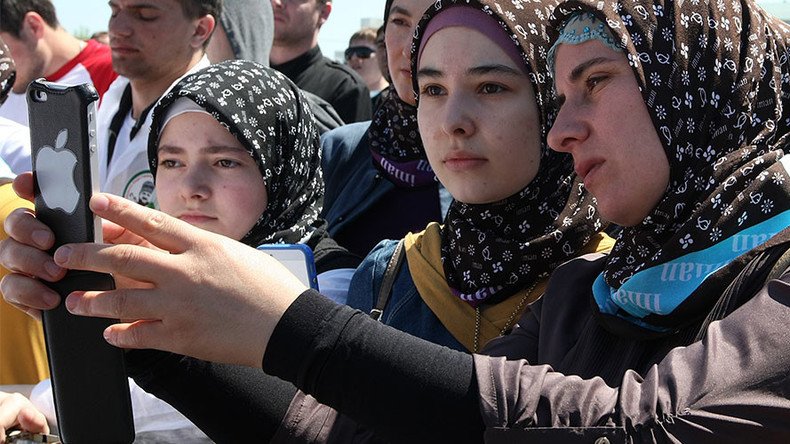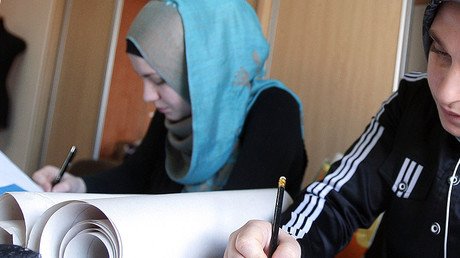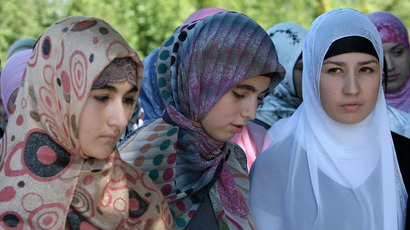Chechnya passes bill allowing schoolgirls to wear hijab in class

The parliament of the Chechen Republic has passed a bill allowing schoolchildren to dress according to their religious beliefs, meaning the female Muslim hijab headscarf will be permitted in local schools.
The bill reads that all educational establishments in Chechnya must consider the students’ right to wear clothes or symbols required by their religion or national traditions, provided this does not contradict federal laws and does not harm the children’s health.
“The educational policies of educational organizations in the Chechen Republic must be conducted without any infringement to national traditions and religious beliefs of the students,” the head of the Chechen parliament’s Committee for Education, Science and Culture, Bekhan Khazbulatov, said in comments on the motion.
Russia does not have a single school uniform, but standard school clothing can be introduced by local authorities at regional and municipal levels.
In Chechnya school uniforms were introduced in the capital city Grozny from September 1, 2016. The current model of the Grozny uniforms includes a red headscarf for girls.
In 2015 however, Russia’s Supreme Court ruled to uphold the ban on Muslim headgear in schools introduced by the authorities of the central Russian Republic of Mordovia. The court rejected a complaint lodged by the Mordovian Muslim community, which claimed that the ban on religious headwear in schools violated the constitutional principle of freedom of conscience. The judge ruled that the ban on wearing headscarves in schools did not prevent Muslims from believing in God and did not infringe on constitutional rights.
Back then, the head of the Chechen Republic, Ramzan Kadyrov, spoke out against the ban, saying that the Russian constitution guaranteed freedom of conscience to every citizen, including schoolchildren. He also called the ban on hijabs in schools “deadly for society” in press comments.
In early February this year, the Presidential Council for Human Rights released a statement in which it urged the federal and regional authorities to develop a common approach to values and to jointly find an unambiguous solution to the problem.
Members of the council agreed that future rulings must not violate the constitutional principle that describes the Russian Federation as a secular state, but at the same time allowed for special exemptions for regions where the majority of the population were religious.
On Friday, presidential press secretary Dmitry Peskov told reporters that the Kremlin did not have a particular position on the issue, adding that the constitution described Russia as a secular state, but that it was necessary to understand if federal and regional authorities could introduce their own regulations concerning school uniforms.
Russian President Vladimir Putin expressed his own position on the issue of hijabs in 2012, when he opposed them being worn in schools. He said that although people’s religious feelings must be respected, Russia is a secular state.
“We should see how our neighbors, European states deal with [wearing hijabs]. And everything will become clear,” Putin said.














